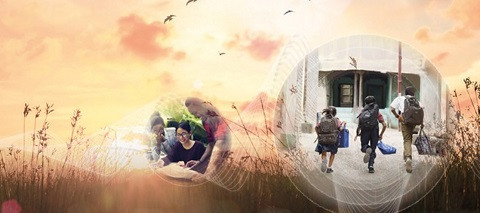
GCED Basic Search Form
Quick Search
현재 위치
뉴스

The COVID-19 pandemic has revealed vulnerabilities; it has also surfaced extraordinary human resourcefulness and potential. Decisions made today will have long-term consequences for the futures of education. Choices must be based on a humanistic vision of education and development, and human rights.
The International Commission on the Futures of Education’s new report Education in a post-COVID world: Nine ideas for public action presents ideas for concrete actions today that will advance education tomorrow.
“COVID-19 has the potential to radically reshape our world, but we must not passively sit back and observe what plays out,” said Ethiopian President H.E. Ms Sahle-Work Zewde, Chair of the International Commission on the Futures of Education. “Now is the time for public deliberation and democratic accountability. Now is the time for intelligent collective action.”
Nine ideas for public action
1- Commit to strengthen education as a common good. Education is a bulwark against inequalities. In education as in health, we are safe when everybody is safe; we flourish when everybody flourishes.
2- Expand the definition of the right to education so that it addresses the importance of connectivity and access to knowledge and information. The Commission calls for a global public discussion—that includes, among others, learners of all ages—on ways the right to education needs to be expanded.
3- Value the teaching profession and teacher collaboration. There has been remarkable innovation in the responses of educators to the COVID-19 crisis, with those systems most engaged with families and communities showing the most resilience. We must encourage conditions that give frontline educators autonomy and flexibility to act collaboratively.
4- Promote student, youth and children’s participation and rights. Intergenerational justice and democratic principles should compel us to prioritize the participation of students and young people broadly in the co-construction of desirable change.
5- Protect the social spaces provided by schools as we transform education. The school as a physical space is indispensable. Traditional classroom organization must give way to a variety of ways of ‘doing school’ but the school as a separate space-time of collective living, specific and different from other spaces of learning must be preserved.
6- Make free and open source technologies available to teachers and students. Open educational resources and open access digital tools must be supported. Education cannot thrive with ready-made content built outside of the pedagogical space and outside of human relationships between teachers and students. Nor can education be dependent on digital platforms controlled by private companies.
7- Ensure scientific literacy within the curriculum. This is the right time for deep reflection on curriculum, particularly as we struggle against the denial of scientific knowledge and actively fight misinformation.
8- Protect domestic and international financing of public education. The pandemic has the power to undermine several decades of advances. National governments, international organizations, and all education and development partners must recognize the need to strengthen public health and social services but simultaneously mobilize around the protection of public education and its financing.
9- Advance global solidarity to end current levels of inequality. COVID-19 has shown us the extent to which our societies exploit power imbalances and our global system exploits inequalities. The Commission calls for renewed commitments to international cooperation and multilateralism, together with a revitalized global solidarity that has empathy and an appreciation of our common humanity at its core.
COVID-19 presents a real challenge and a real responsibility. These ideas invite debate, engagement and action by governments, international organizations, civil society, educational professionals, as well as learners and stakeholders at all levels.
URL:
https://en.unesco.org/news/education-post-covid-world-nine-ideas-public-action
